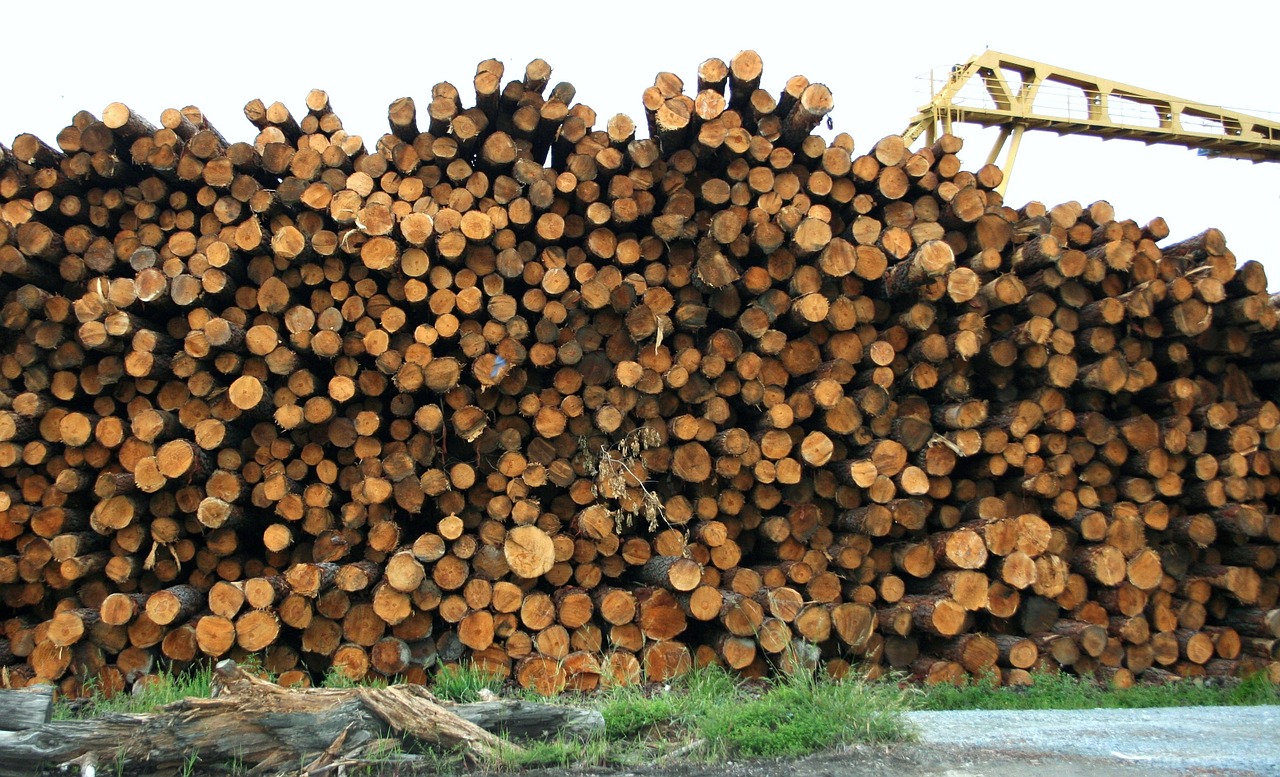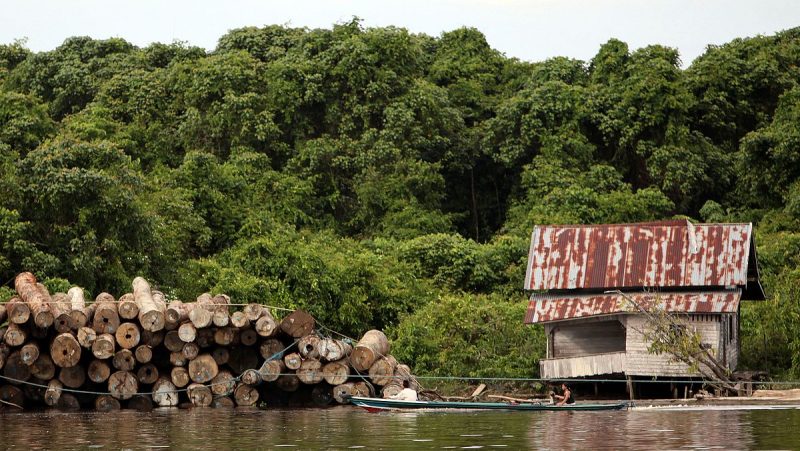On November 15, Indonesia will make history for being the first country in the world to export timber to the European Union (EU) after it passes international environmental standards. The sealed partnership with the EU will act as a vehicle to address and combat the country’s severe problem with illegal logging and deforestation.
Negotiations between Indonesia and the EU started back in March 2007. After a series of diplomatic discussions, a partnership agreement was finally signed on September 30, 2013.
At a Joint Implementation Committee meeting on Thursday, September 15, Indonesia officially qualified for the special lincence. On the same day, Indonesia and the EU agreed on the enactment of the Forest Law Enforcement, Governance and Trade (FLEGT) licensing programme for the nation’s timber industry.
The month prior, Putera Parthama from Indonesia’s forestry ministry said, “Indonesia is the first country to qualify for FLEGT lincence to export wood products to the EU market. We are way ahead of African countries, South America, Malaysia, Vietnam, and China. We are more advanced.”
The programme will aim to eliminate having wood commodities from illegal timber on the EU market. All Indonesian businesses in the timber industry must earn their lincence to export products to the EU. This means that local timber mafias will theoretically have no way to legitimately sell to the 28-nation bloc.
Many are hopeful that the programme will help save Indonesia’s historic problem of deforestation by separating the legal and lincenced timber activities from the illicit. If not properly carried out, however, many fear the plan has potential to backfire, and actually boost the rate of deforestation in the archipelago.
To get a better understanding of the agreement, Indonesia Expat sat down with Muhamad Kosar, the national coordinator at the Independent Forestry Surveillance Network. Kosar holds a unique perspective on the issue. He believes the government should maintain the integrity of FLEGT licensing.
The destruction of Indonesian forests began back in the 1970s, when logging corporations were granted easy access to the country’s natural resources. Kosar says “Indonesia has already lost around 22.46 million hectares from 1985 to 1997, or around 1.87 million hectares of forest a year. In early 2000, the rate of deforestation reached its peak at 2.84 million hectares a year. With widespread illegal logging practices in Indonesia at that time, the country gained a bad reputation on forest regulation across the globe.”
Experts say the problem is urgent, as deforestation creates a domino effect of ecological destruction. On a large scale, it can lead to environmental disasters like flooding, landslides, droughts, and even wildlife extinction.
It disrupts the balance of the ecosystem, as access to water, food, and other natural resources begins to disappear.
He adds, “Without a doubt, this problem persists due to forest conversion and burning [slash and burn practices].” Additionally, the government’s policies are responsive and not active, says Kosar. They are not preventative, and do virtually nothing to tackle the problem of weak forest regulations in the country.
One of the government’s most prominent efforts is developing the Wood Legality Verification System (SVLK). The timber legality assurance system is meant to ensure that all wood-related products from Indonesia comply with government regulations. Verification is done through transparent and independent auditing and reporting to the public.
The SVLK is considered the foundation of the FLEGT partnership between Indonesia and the EU. It serves as the base of recognition by the EU toward Indonesia’s effort to combat illegal timber.
SVLK mandates that all wood or related products must meet certain standards on four key requirements including authorization of practice, production processes, environmental impact and social impact to be considered legal and marketable. This is meant to make buyers in the EU confident that lincenced businesses will thrive in Indonesia’s timber trade, while their illegal counterparts should be denied verification.
“SVLK as a tool to repair the management of forest regulation is not yet perfect. However, it has brought some significant impact in improving the performance and effort of the wood companies to follow the regulations,” explains Kosar. “The partnership agreement with the EU is not only an important milestone but also an impetus for the government to improve the system.”
According to the European Union Ambassador Vincent Guerend, the FLEGT lincence process makes doing business between Indonesia and the EU easier and more efficient. The ambassador claimed it signals transparency, accountability, participation, and justice in making decisions about the nation’s forestry.
Kosar believes FLEGT encourages credibility, and will therefore result in full-fledged SLVK enforcement, as the EU will only accept FLEGT-lincenced local operators.
He also hopes that moving forward the legality and quality of Indonesia’s exported timber will not be doubted, adding that illegal timber should not be able to enter the EU if the plan goes well. Locals are also expected to help by reporting illegal activities to the authorities if they’re aware of illegal operators in the archipelago.
However, despite support from the EU, stakeholders fear the system has some serious shortcomings. “There are loopholes and dishonest practices that could go unnoticed if strict monitoring and law enforcement are absent,” says Kosar.
It’s up to the Indonesian government to be mindful of its role in the agreement, he adds. The Independent Forestry Surveillance Network believes improving management of the country’s forest regulations should be stringently implemented as soon as the FLEGT licensing programme takes full effect in November.
“The government should utilize the momentum of the FLEGT lincence by monitoring processes, investigating suspicious reports, reviewing permits, and strictly enforcing the law – while resolving current conflicts and irregularities,” adds Kosar.
Data shows exports to the EU account for 11 percent of total wood and paper production in Indonesia; roughly US$1 billion in value. If the new system’s implementation is successful, it would double the nation’s timber exports and raise the value to US$2 billion a year.
If the licensing programme is properly implemented, many environmental and social problems could be eventually resolved. An effective implementation of the programme would provide a positive example to show that restoration of Indonesian forests and their ecosystems is still possible.
Edited by Nadya Joy Ador and Leighton Cosseboom; Featured Image via Wikimedia




